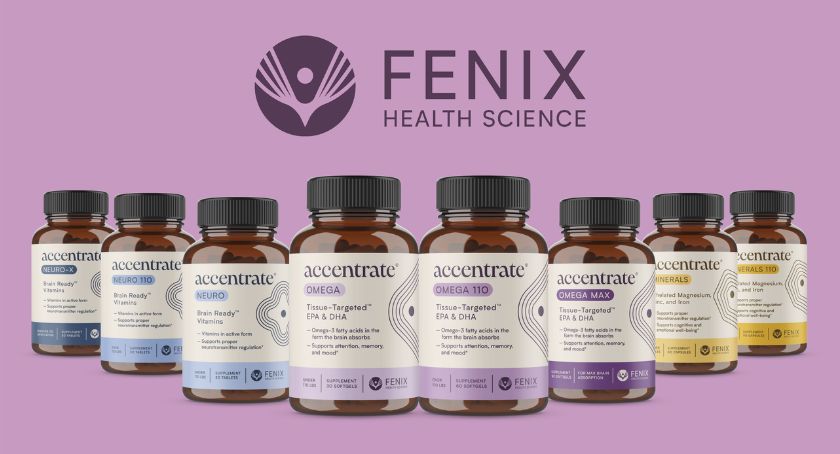Exclusives
VITAL Study Results a ‘Real Game-Changer’: CRN’s Andrea Wong
Study showed 2,000 IU of vitamin D and 1 gram of omega-3 fatty acids daily for two years reduced risk of developing certain autoimmune diseases.

By: Mike Montemarano
In late January, analysis from the VITAL study conducted by researchers at Harvard University found that taking 2,000 IU of vitamin D and 1 gram of omega-3 fatty acids daily for two years resulted in a 22% reduced risk of developing certain autoimmune diseases compared to taking a placebo. VITAL’s primary endpoints were tracking cardiovascular events, and involved 25,871 participants aged 55 and older and followed up with them for a median of 5.3 years.
Autoimmune diseases (ADs), in which the immune system mistakenly attacks cells in the body, include conditions such as celiac disease, rheumatoid arthritis, psoriasis, lupus, MS, type 1 diabetes, and many more, affecting an estimated 23.5 million Americans, according to NIH estimates.
When considering three years of post-intervention follow-up, the risks of developing an AD were reduced by 39% in the vitamin D arm of the study, and 10% among those who took omega-3s. Supplementation with both nutrients resulted in a 30% decrease in AD versus placebo alone.
While the study was observational in nature, the authors proposed that a range of inflammatory-regulating activities exhibited by vitamin D, EPA, and DHA could in sum suppress certain inflammatory cytokines and chemokines, reduce antigen presentation capacity, increase the production of regulatory T cells (vitamin D), inhibit the production of C-reactive protein and inflammatory cytokines, decrease T cell proliferation and activation, and serve as substrate for specialized pro-resolving lipid mediators which promote the resolution of inflammation.
The Implications
Andrea Wong, PhD, senior vice president of scientific and regulatory affairs for the Council for Responsible Nutrition, discussed the context of this study with Nutraceuticals World, along with implications for future research and potential dietary recommendations.
“Data showing that supplementing with two commonly available and important nutrients, vitamin D and omega-3, could reduce incidence rates is a real game-changer,” Wong said. “I think most people know someone with an autoimmune disease … Treatment today is all focused on symptom management, and managing immune responses within the body. To prevent the disease from manifesting in the first place is critical.”
Wong noted some possible paths of inquiry that this review could serve as a foundation for. “As the authors themselves have said, because this study was conducted in older adults, it would be of interest to look at whether similar effects could be achieved in younger populations, especially given that we’re seeing increasing vulnerability to autoimmune diseases in younger people. With the disease rate dropping by 40% at the five-year follow-up [the treatment period only lasted two years] there’s definitely a possibility to follow this original cohort for a few more years to see if the risks of disease are further reduced.”
Furthermore, only one dose and one formulation of each supplement was tested in the population, and future studies could assess a range of doses, delivery formats, and formulas.
Little evidence has been gathered prior to this study that nutritional interventions could be helpful in the prevention of AD, making the findings in the review unique, Wong said. Most nutrition research involving AD has been in the realm of symptoms management.
“In terms of managing symptoms, research has looked at interventions such as the Mediterranean diet, or avoiding foods that could cause gut inflammation such as dairy, grains, or refined sugars,” she noted. “There have also been studies on ingredients like probiotics and other fibers in rheumatoid arthritis patients. But these studies have all involved populations much smaller than the one in the VITAL trial.”
While the dosage of vitamin D is three-times that of the recommended daily intake (RDI), Wong said it’s important to consider that intakes above the RDI, which is based on bone health outcomes, may be needed for other benefits. “2,000 IU is a commonly available serving size in vitamin D supplements, and 1 gram of omega-3s is commonly available in the marketplace, so it’s already a pretty realistic dose, even when thinking about the general population,” Wong said, also noting that intakes above the RDI might be needed for bone health depending on the individual.
Lastly, Wong said that in this study, no one autoimmune diseases was more heavily impacted in the area of risk reduction than another. “There is a huge opportunity here to use this data to educate consumers and healthcare providers, and there are ways in which the industry could engage in reaching these audiences.”





















